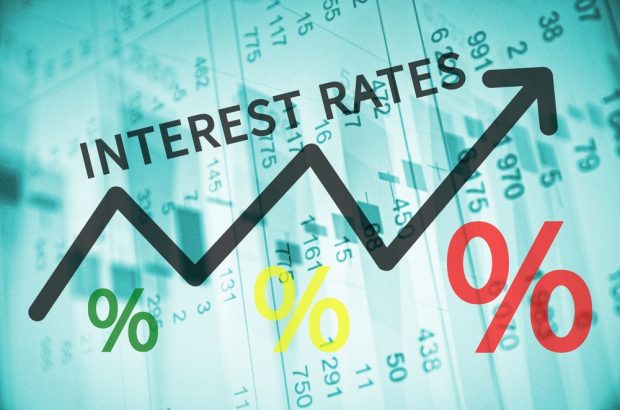 Source: Shutterstock
Source: Shutterstock
The possibility of the Fed raising interest rates next week a mere 50 basis points vanished with Wednesday's higher-than-expected inflation report and raised the specter of a full percentage point increase, NAFCU Chief Economist Curt Long said.
The U.S. Bureau of Labor Statistics reported that the Consumer Price Index rose 0.1% from July to August, following no change in July. August's index was 8.3% higher than in August 2021, while the annual inflation rate in July was 8.3%.
Recommended For You
Core inflation, which excludes the volatile food and energy prices, rose 0.6% from July to August, following a 0.3% gain in July. August's core inflation was 6.3% higher than a year earlier, up from 5.9% in July.
 Curt Long
Curt Long "Where a day prior to the release there was still a minority of market participants expecting a 50-basis-point hike from the Federal Reserve next week, that bet evaporated with this report," Long said. "NAFCU's expectation of a 75 basis point hike remains the median market view, and there is even an outside possibility of a full percentage point hike."
CUNA Senior Economist Dawit Kebede said he also expects the Federal Reserve's Open Market Committee to raise rates 75 bps at its Sept. 20-21 meeting, raising the target rate to 3% to 3.25%. He expects it to raise rates again at each of its next two meetings Nov. 1-2 and Dec. 13-14.
 Dawit Kebede
Dawit Kebede "The economy is heading into a more restrictive interest rate environment," Kebede said. "Despite indications of a slow-down in headline inflation in the last two months, it is still much higher than the Federal Reserve's target of 2%."
Kebede said prices fell for gas, used cars and air travel, but were offset by increases in housing, food and health care.
The BLS reported new vehicle prices rose 0.8% following a 0.6% increase in July. Since August 2021 prices have risen 10.1%. Used cars and trucks fell 0.1% following a 0.4% drop in July. Since August 2021, prices have risen 7.8%.
"The increase in new car prices indicates continued shortages with production and labor; the auto sector is struggling to bring output back to its pre-pandemic level," Kebede said. "Currently, there is a gap of three million in total vehicle sales compared to 2019."
The BLS also reported that both rent and the owners' equivalent of rent rose 0.7% from July to August, about the same increases as July. Rents were up 6.7% from a year earlier, while the owners' equivalent of rent is up 6.3%.
Long said August's inflation exceeded expectations.
"While gas prices declined by 10.6% and dominated news headlines, shelter, food and health care costs continued to rise," Long said. "The cost of shelter rose 0.7% in August, which is the highest monthly growth rate in over 30 years. Although the housing market is cooling with the rise in rates, it will take time before it feeds through to inflation data."
© Touchpoint Markets, All Rights Reserved. Request academic re-use from www.copyright.com. All other uses, submit a request to [email protected]. For more inforrmation visit Asset & Logo Licensing.







